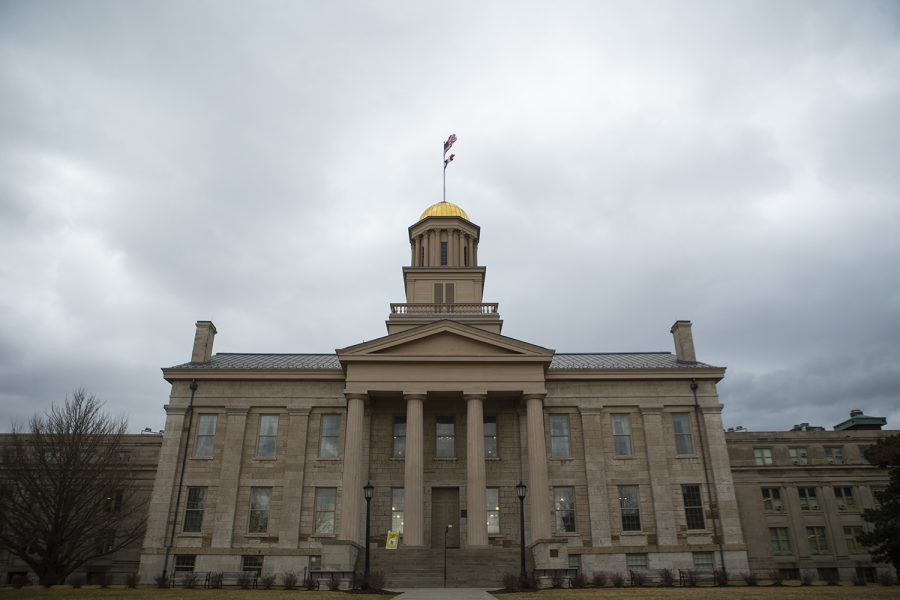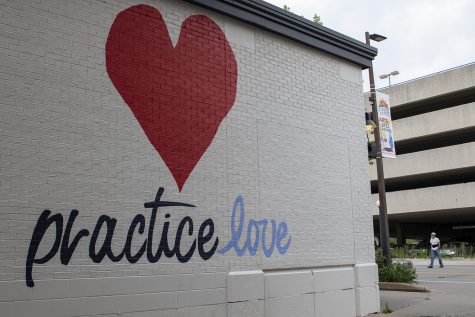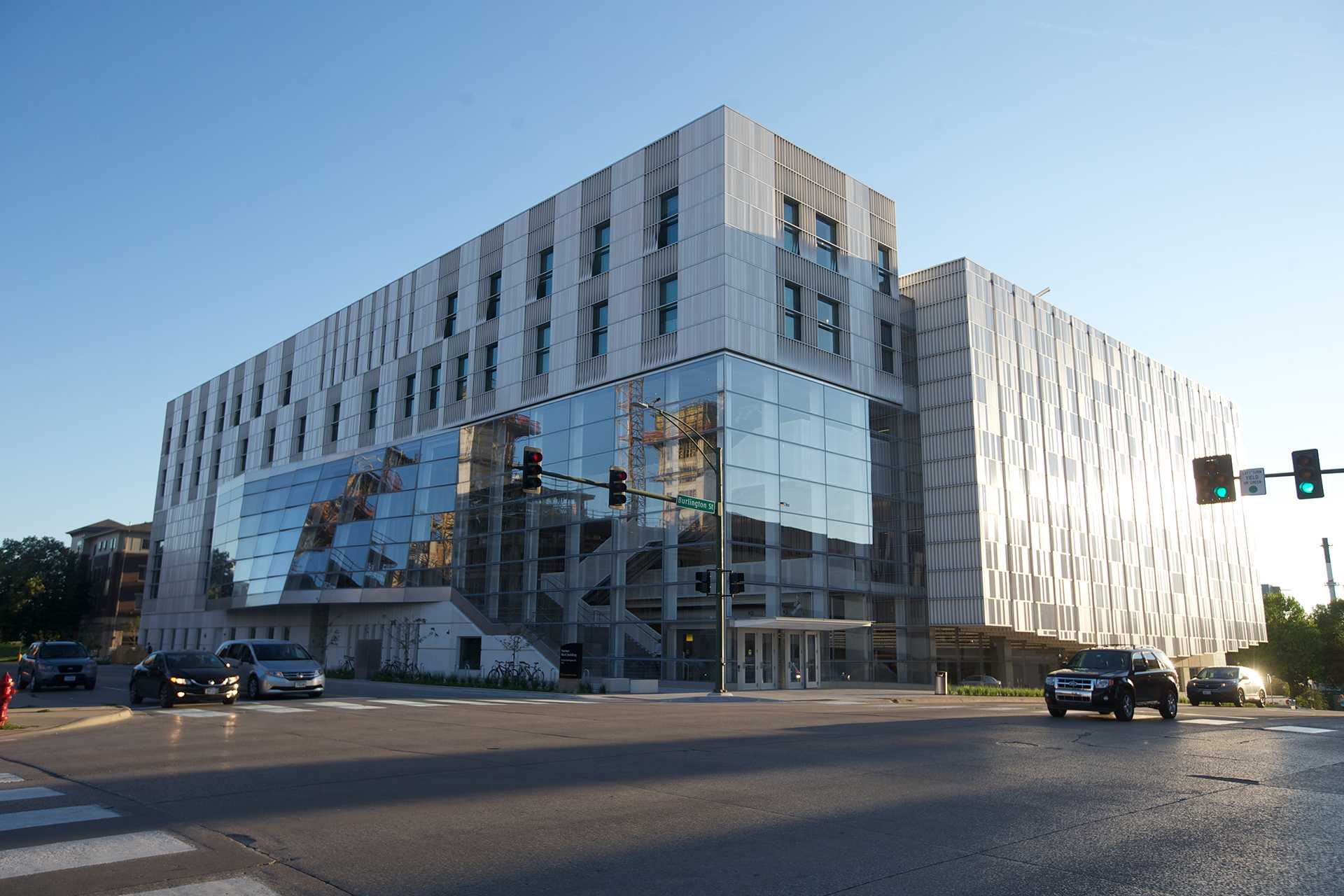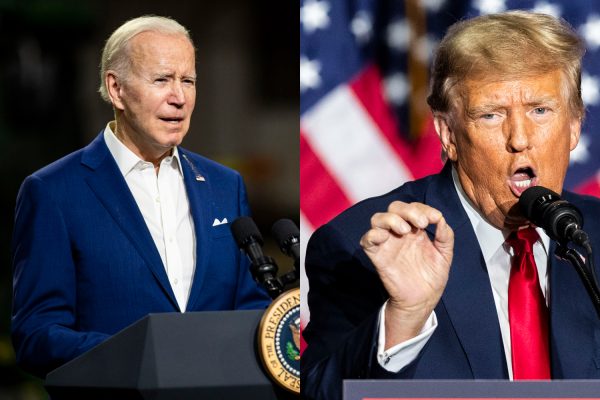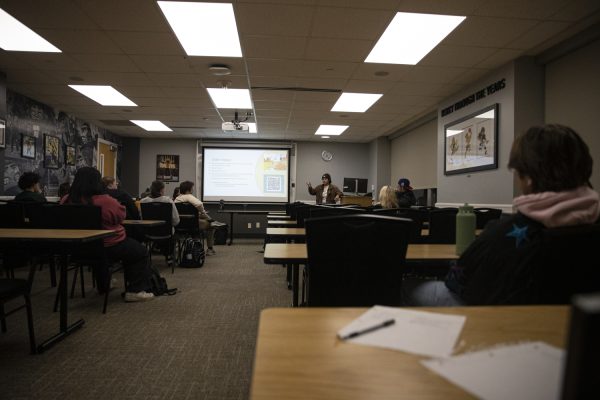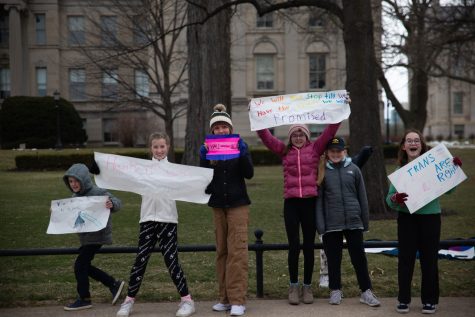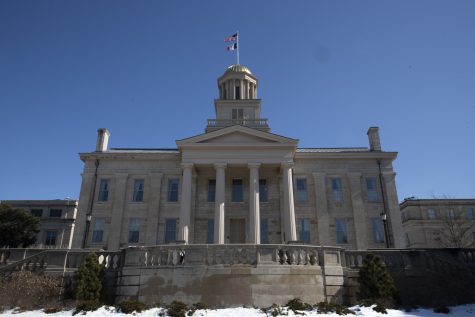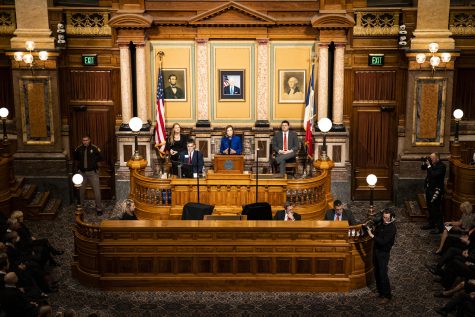Editorial: One-semester tuition freeze isn’t enough for Iowa students
In such uncertain times students need clarity and direction on from the administration on the impact college will make in their financial future.
The Old Capitol is seen on Thursday, March 12, 2020.
May 5, 2020
While uncertainty grips the world, college students face the added stress of the upcoming school year, and its price tag.
For now, some of us are celebrating the state Board of Regents’ recommendation to not increase tuition and fees for the upcoming academic year.
This is contrary to the multiyear tuition model the regents unveiled in 2018 to keep tuition competitive with peer institutions while also offering students and families predictability in their financial planning. The model outlines a base range of tuition hikes that students can expect for the next five years, with state appropriations playing a key role in determining where rates ultimately fall.
On the surface, it’s good news. Students have advocated for tuition freezes as student-loan debt skyrockets beyond $1.6 trillion owed collectively by 45 million borrowers, according to Forbes.
University of Iowa President Bruce Harreld has told *The Daily Iowan* — at least in ordinary, non-pandemic times — he thinks that action is a mistake while other schools in the peer group don’t freeze their tuition rates. This step, normally dismissed as an impossibility, is now reality amid unprecedented financial hardship and record-high unemployment levels.
But students shouldn’t get too comfortable with the proposal just yet, and we should prepare for the tuition freeze to thaw quickly.
RELATED: University of Iowa president reports around $76 million in expenses, losses from COVID-19 response
Regents documents state the governing board may re-evaluate tuition rates for the spring 2021 semester in the fall “as more information becomes available.” The regents vote on the rates at their June 4 meeting.
Given the unusually high amount of unknowns about COVID-19 and university operations in the fall, the regents recognize our current crisis is “unprecedented.”
“Like every other facet of society, our public universities have undergone massive disruptions, which affect all of our students, faculty and staff,” the tuition proposal states. “It is important that our students, families and our institutions have as much financial predictability as possible.”
This is a necessary step to put students and families at ease as they may be struggling to pay for food, rent, and other bills.
Yet, this proposal doesn’t go far enough.
As students face a fall semester of uncertain, still-to-be-determined operational scenarios, we need transparency in the total cost of a regent-university education for the year.
As we battle our own uncertainties, the universities have set up support funds for students to apply for emergency cash grants. Those who meet certain requirements, such as filling out the Free Application for Federal Student Aid, also may now apply for support through the university’s $16.2 million share of the federal Coronavirus Aid, Relief, and Economic Security Act — $8.3 million of which will fund financial aid for Hawkeyes who demonstrate they’re experiencing a financial burden because of the pandemic.
RELATED: Iowa regents recommend no tuition hikes amid ‘unprecedented’ COVID-19 uncertainty
Those efforts are appreciated and may make all the difference for some, but as Harreld told the regents April 30, those federal funds won’t be enough to fill the UI’s $76 million fiscal shortfall through August from responding to the virus.
It seems likely that as Iowa’s public universities face enrollment declines, particularly among first-year and international students, the regents will tap into students’ pocketbooks for revenue.
While Harreld urged the state to remain a stable funding partner, history has shown too often that Iowa lawmakers see higher education as an expense to be cut. He said so himself. Funding for the institutions will likely be a target again when the General Assembly meets soon to finalize a fiscal 2021 budget.
Leaders don’t need to have all the answers — even the experts don’t have those to offer — but they need to be clear in their uncertainty. Students are prepared to commit to their education each academic year without interference from semester to semester.
The UI should commit, too.



